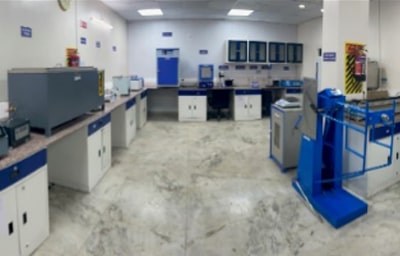- June 22, 2022
What is Soil Testing? And Why is It important?

One of the optimum natural resources is soil. Soil is used in different industries for several purposes. Right from agriculture to building tall buildings, soil plays a vital role in numerous sectors.
Did you know that there are six main types of soil?All type of soil is used for different reasons in different manners. However before using the soil, it goes under several tests and experiments. These tests are very important in order to make sure that the best quality of soil is achieved from it.
Soil test is performed to determine different characteristics for example nutrient content, composition, acidity, PH level, etc. There are different purposes of soil testing according to the industrial requirement.
Such as, in agriculture, soil testing is executed to analyze the moisture level in the soil, to ensure the possible contamination in soil, to optimize crop production, etc. Some soil tests are performed in the field and some in the labs.
The common method involves the collection of sample soil in plastic bags or trays. Some waste or litter is separated from the sample soil.
There are various methods for soil testing;Soil testing is very important in various sectors because of obvious reasons. In the agriculture sector, 60 percent of crop yields depend on soil fertility. Therefore, making sure the soil is of good quality is equally significant as other factors of farming.
The soil testing methods not only address the famer’s worries but also benefit the environment. Numerous factories, industries and even residential or commercial properties discharge hazardous harmful chemicals into the soil or water (which eventually gets mixed with nearby soil). In such cases, the land loses its fertility and becomes environmental concern. To avoid such situations, soil testing can be a huge help. Additionally, many open wide areas are used to dump litter as well as plastic without proper garbage disposal. To stop such lands, soil testing can help. The process not only helps in identifying what pollute elements are present in the soil but also helps in analyzing what ensures should be taken.
Before the start, farming involves a large amount of research. Right from weather to soil efficiency, everything needs to be tested to make sure the productivity of farms. A soil testing allows farmers understand what amounts of nutrients are already present in the soil and how much extra is required. It helps in brining increased consistency of nutrient availability across the fields for more uniform crop growth. It additionally helps in examining soil structure, soil texture, as well as color along with the soil’s nutrient level and pH content. With help of these test reports, farmers can make a decision what can be done to get better the soil quality in their farms.
Soil testing decides the bearing capacity of the soil and additionally determines the structural stabilization of the soil. To avoid exposure to unidentified dangers, soil testing is performed at the start of construction projects.
Soil testing is a important part of many sectors. Since it involves a variety of methods and types, we recommend hiring professional and expert Soil Testing Laboratories Service providers. The test results show the quality of soil and therefore should not be compromised by in-house soil testing. QA Testing Laboratories has a dedicated team for soil testing with skilled & experienced professionals.